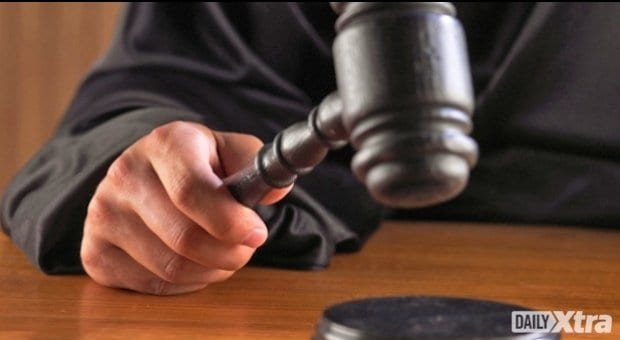The BC Court of Appeal July 5 ordered a new trial in a murder case where the original judge rejected the accused’s homo-panic defence.
Cory Peter Bird was convicted of second-degree murder after he stabbed Albert James Michell 73 times on the Lytton First Nation’s Siska Reserve in 2008, a Kamloops judge ruled in 2011.
Bird had told the Kamloops judge that he awoke on the night of the murder to find Michell, 40, sitting naked and watching porn. Bird, who was 20 at the time, said Michell approached him in an aggressive fashion, waving a knife, and told him to remove his shorts. Bird claimed he snapped after Michell tried to give him a blowjob.
BC Supreme Court Justice Richard Blair didn’t buy it. Given Bird’s previous experiences with men and the deliberation with which he killed Michell, he was not in the throes of irrational rage provoked by Michell’s sexual advances when he killed him, Blair ruled.
“He also acknowledged having had a homosexual boyfriend at one time, although he described himself not as a homosexual but as a bisexual individual,” Blair noted.
Bird later admitted that he made up the provocation part of his story. “The only reason why I made up the story in the first place was so that none of my family or friends would ever find out that I’m bisexual,” he said.
He also acknowledged to police that if he claimed self-defence, he would likely get a lighter sentence.
“I conclude that he [Bird] would not find Mr Michell’s sexual contact to constitute either insults or wrongful acts,” Blair ruled.
The appeal court ruled that Bird’s sexual orientation was not relevant to assessing whether he was provoked by Michell’s sexual advance.
“Mr Bird’s sexual orientation and experiences can play no role in the court’s assessment of whether Mr Bird lost self-control when faced with unwelcome same-gender sexual contact,” Justice Anne MacKenzie ruled, with agreement from justices Harvey Groberman and John Hall.
But the appeal court was most concerned about the trial judge’s misunderstanding of evidence related to Bird’s ability to consume alcohol. Blair drew inappropriate conclusions that led to a miscarriage of justice, the appeal court ruled.
The Kamloops court had heard that Bird and Michell were drinking on the night that Michell was stabbed 73 times with three different knives.
After the attack, Bird fled to Montreal, where he was arrested after drinking a significant amount of beer. It was based on an assessment of the amount of alcohol he consumed that day that the court drew its facts about his state of impairment on the night of the killing.
Blair sentenced Bird to 12 years in prison with no parole eligibility for 12 years.
The three appeal judges agreed unanimously that Blair mistakenly accepted evidence that Bird was an experienced drinker and therefore could not use being drunk as a defence.
The judge also accepted evidence from a toxicologist that an experienced drinker could metabolize alcohol faster than an average person and sober up faster.
“I disagree that the judge could find Mr Bird was an experienced drinker based on his conduct in Montreal a week after the killing,” MacKenzie ruled.
“The finding that Mr Bird was an experienced drinker was a significant error that also affected the judge’s assessment of the intoxication defence,” she ruled.
Without the defence of intoxication, the judge could and did find that Bird had the capacity to form the intent to kill.
“The misapprehension of evidence resulted in a miscarriage of justice and a new trial is necessary,” MacKenzie decided.

 Why you can trust Xtra
Why you can trust Xtra


